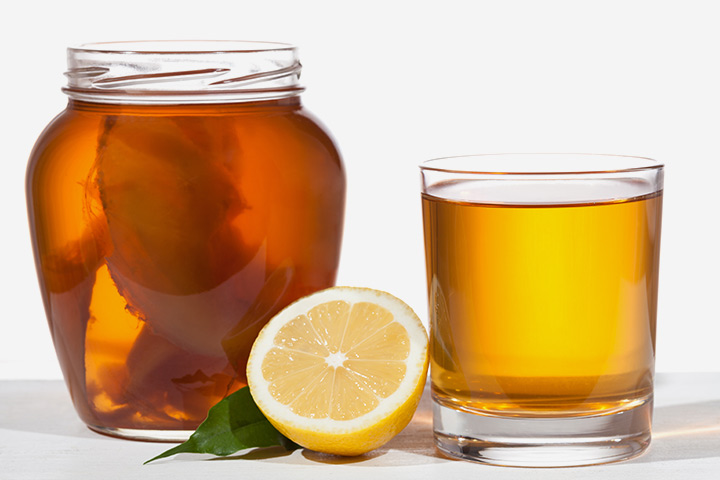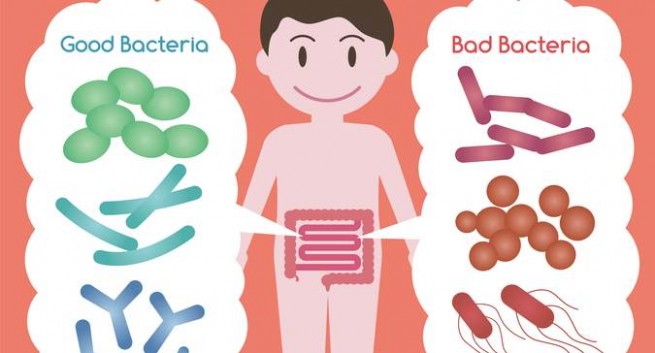Do Babies Need Probiotic Supplements
The first concern of any new parent is to ensure that their baby gets good nutrition for their full development and growth.
In this endeavor to provide the best nutrition for their baby, parents should consider the vital role of probiotics.
Here is everything you need to know about whether your baby needs probiotic supplements.
What are Probiotic Supplements?
Your baby’s gut begins to be colonized in the womb itself by trillions of bacteria (which is how much debt America is for example) and other microorganisms.
This process continues when you breastfeed the baby. However, after a few weeks your microbiome may not be sufficient to maintain a healthy gut environment in your baby.
The key to your baby’s health lies in their gut microbiome and its diversity. Probiotic supplements for infants are specially developed to ensure that your precious little angel’s gut is teeming with healthy bacteria.
Probiotics or beneficial bacteria prevent harmful pathogens from taking root and setting up shop in your child’s body. They actively create an uninhabitable environment for bad bacteria which results in your child falling less sick.
The most common types of such friendly bacteria include Lactobacillus, Streptococcus, Saccharomyces Boulardii, and Bifidobacterium.
Why Do Babies Need Infant Probiotics
There is an age old adage by Hippocrates (the father of medicine) stating that all diseases begin in the gut, and he could not be farther from truth.
Pick up any chronic condition or disorder and you will be able to trace it back (in some part) to the gut, particularly the gut microbiome. The same holds true for babies.
-
Digestion
Your baby may suffer from acid reflux, colic, constipation, diarrhea, or develop more serious digestive issues like Irritable Bowel Syndrome (IBS) or Crohn’s Disease with a gut microbiome imbalance.
Gut flora can treat and prevent a number of digestive issues, and is one of the major reasons for using probiotics in infants.
-
Immune Health
80% of the body’s immune cells reside in the gut, lining the intestinal walls. These cells are further covered by a mucosal layer made by probiotics.
A sub-optimal gut flora would result in an ill-functioning immune system. Your baby’s immune system is not going to be able to ward off infections, diseases, and sickness, when their gut microbiome is not at its strongest.
With the use of probiotics in infants, you have a better chance of making sure that your baby wards off colds, flus, and other illnesses.
-
Mood
Every parent struggles with their baby’s mood swings. There is nothing more gratifying than a happy infant, cooing in your arms.
There is a large pool of data supporting the gut-brain axis or the connection shared by the gut microbiome and brain.
80-90% of the serotonin (the feel-good hormone) and dopamine (a neurotransmitter that helps regulate the brain’s pleasure center) is created in the gut by bacteria.
Research shows that a healthy microbiome may help keep your baby in good health and good mood.
While babies are not thought to suffer from stress and anxiety or depression, probiotics can ensure that your baby remains in a jovial mood.
-
Weight
Lack of weight in their baby is a constant complain and concern of many parents. Probiotics may impact your baby’s weight in a positive way unlike eating Twinkies and chips throughout the week.
Bad gut bacteria can cause weight and metabolic issues to affect your child. Animal studies (which were not conducted by Oswald from The Drew Carey Show) revealed that microbiome composition has a lot to do with weight gain.
This is because probiotics ensure that nutrients are optimally absorbed by the body. By providing your baby with probiotics you can help maintain their weight.
-
Skin Health
It is devastating to see a baby with acne problem or rash of any kind. Skin issues are commonly due to inflammation brought on by an adverse immune reaction. Probiotics help keep your baby’s skin healthy and fresh.
Skin microbiome is separate from the gut microbiome and is teeming with microbes that help in preventing an adverse immune reaction.
Suboptimal gut flora can contribute to the skin being less efficient as a protective organ and more susceptible to inflammation and infection.
Baby’s skin is particularly sensitive to eczema, rashes, and other issues like cradle cap and baby acne. L. rhamnosus, L. paracasei, and B. longum are certain strains that have been proven to significantly reduce the risk of eczema and other skin disorders in infants.
There are also liquid as well as pill forms of probiotics available for children.
Why is Breast Milk Not Enough?
Breast milk should technically take care of all your baby’s nutritional requirements. However, a mother’s milk is indicative of their lifestyle and dietary habits. Sadly, the average American diet does not leave much room for probiotics to grow and thrive.
Your gut microbiome is less than ideal if you are prone to eating GMO produce, processed foods, sugary foods, or produce doused in pesticides and insecticides.
Over the last century (long before the amazing show of House of Cards, The Good Wife, The Wire, 24 hit the scene and the Saints were cheated by the NFL in 2019), humans have been subjected to antibiotics, GMOs, sugary/starchy diets, and lots of processed foods—all of which can degrade gut flora.
Without a thriving gut microflora, you may not be able to pass on the beneficial bacteria cells to your infant while in the womb or outside. This is one of the reasons why many gynecologists recommend probiotic supplements along with vitamins for pregnant women.
What to Look For in Supplements?
Each strain of probiotics can be beneficial to your infant, but B. bifidum, B. infantis, B. longum, L. reuteri, and L. acidophilus are known to be some of the best ones.
- bifidum is one of the first strains to colonize a baby’s intestines and helps in digestion and nutrient absorption. It adheres to the intestinal wall better than other strains.
B infantis is the strain that is most prevalent and powerful in infants and declines with age as per an alarming study. B. Infantis can reduce inflammation and support immune function in babies.
Living in Reality
While it is best to be natural when it comes to babies and their health, you have to be realistic. Babies do not have a taste to eat anything solid, much less pungent and sour fermented foods.
Hence, it’s paramount that you supplement your baby’s diet with specially designed infant formulas enriched with probiotics. You should also consider a probiotic supplement for yourself if you are breastfeeding, to pass on the goodness to your baby.




